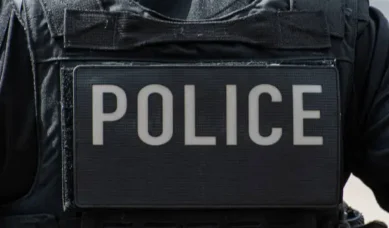Services » Criminal Law » Justice Mediation
Justice Mediation
Justice Mediation
The complainant can discuss how they were affected by the defendant’s actions and the defendant can try to repair the harm they caused. Friends or relatives may attend for support.
Mediators guide discussion about the offence and how the defendant might make amends. Making amends means being responsible for actions. It might involve:
- Returning stolen property;
- Agreeing to do something for the complainant, such as paying money or repairing damage;
- Making an apology.
A defendant’s assurance that the offence will not be repeated can help repair emotional harm. Some defendants agree to attend counselling or enrol in special courses.
How Justice Mediation Works
The court, police or prosecutor can refer people to justice mediation. Complainants, defence solicitors and barristers can also suggest justice mediation. Participation is always voluntary.
Justice mediation is usually used for offences heard before a Magistrates Court, such as stealing, assault, wilful damage and unlawful use of a motor vehicle. It might also be used for more serious offences, depending on the situation. It may even be used for bullying or similar behaviour if the defendant is willing to accept responsibility.
Justice mediation usually occurs before a court hearing or sentencing but can happen at any time provided the complaint has been lodged with the police.
Before the day of the mediation, the justice mediation staff interview the complainant, the defendant and their support people to prepare them for the mediation session.
At the mediation
Guided by the mediator, both parties talk through what happened and how they feel. They discuss why and how the incident happened, its effect and how the defendant might make amends.
Justice mediation usually takes about 2 hours and is held at the local courthouse or Dispute Resolution Centre. An interpreter can attend if necessary.
Once the parties reach an agreement, the mediator helps both parties write it down.
How it works for complainants
At justice mediation, you can:
- Tell the defendant how their behaviour affected you;
- Ask questions about the incident;
- Express your feelings in a supportive environment supported by family and friends;
- Reduce your fear of further victimisation;
- Receive an explanation or apology from the defendant;
- Make an agreement with the defendant about how they can repair the harm they’ve caused.
Arranging mediation for complainants
The police, Office of the Director of Public Prosecutions or court can refer you for justice mediation with your approval. We then contact you to explain the process and the role of the mediators.
All matters you discuss are confidential. You can arrange and receive legal advice before and during the mediation.
You can invite family or friends to support you during a mediation. If you don’t wish to attend the mediation in person, you can:
- Write a victim impact statement;
- Send a tape-recorded message to be played to the defendant;
- Nominate a friend or family member to attend on your behalf.
You can contact a member of the justice mediation program for more information:
Brisbane
(07) 3239 6246
[email protected]
Gold Coast
(07) 5583 5073
[email protected]
Townsville and Cairns
How it works for defendants
If you have harmed someone or damaged their property, justice mediation enables you to:
- Own up to what you’ve done;
- Accept responsibility for your actions;
- Take steps to repair the harm or damage you’ve caused.
At justice mediation, you’re expected to accept responsibility for your behaviour and acknowledge the impact that it had on the complainant.
At the session, you can talk about how and why the incident happened. The complainant then talks about the incident and the impact it’s had on their life.
Complainants are often very upset about what has happened to them. They usually want to express their emotions and feelings about the incident. This is a very natural response. The mediators help manage the strong emotions and direct the discussions towards a positive outcome for everyone.
The meditation focuses on what happened, the effects on all parties and what can be done to repair any harm that resulted. The group can discuss how the harm can be repaired. Once you and the complainant agree on the best way to make amends, you’re able to sign an agreement with the complainant.
Arranging mediation for defendants
The police, Office of the Director of Public Prosecutions or court can refer you for justice mediation with your consent. We then contact you to confirm you’re willing to participate.
You can contact the Dispute Resolution Centre for more information.
You can discuss justice mediation with your lawyer, or the investigating police officer or prosecutor.
After an agreement is reached
After the mediation, we let the referrer know that the justice mediation has occurred. With both parties’ consent, we provide a copy of the agreement to the referrer so they can see if and how the parties have finalised the matter. The referrer then decides whether the court process should continue.
Call an Expert Lawyer
If you are charged with an assault offence, it is very important that you seek immediate legal advice. Our team of lawyers at Brooke Winter Solicitors can give you over the phone advice. We have a solid reputation as expert Criminal Lawyers and can represent you in court.
Call us on 1300 066 669 if you have any questions. We can assist you no matter where you are located and can appear in every court.
In need of representation?
"*" indicates required fields
Resources
Changes to the System – PPD v PPN
Youth Justice Reforms and Bail Crackdown in Queensland
Sentencing Reforms in Queensland
Magistrates Court Reform in Queensland
Logan Under-25s ready to Change the World
"*" indicates required fields
Lorem ipsum dolor sit amet, consectetur adipiscing elit. Ut elit tellus, luctus nec ullamcorper mattis, pulvinar dapibus leo.
Lorem ipsum dolor sit amet, consectetur adipiscing elit. Ut elit tellus, luctus nec ullamcorper mattis, pulvinar dapibus leo.
Lorem ipsum dolor sit amet, consectetur adipiscing elit. Ut elit tellus, luctus nec ullamcorper mattis, pulvinar dapibus leo.










